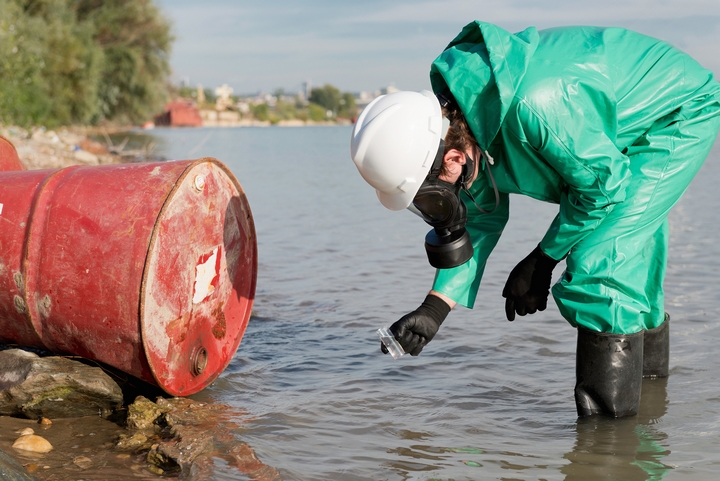Leading Industrial Wastewater Treatment Solutions: Making Sure Conformity and Effectiveness
Leading Industrial Wastewater Treatment Solutions: Making Sure Conformity and Effectiveness
Blog Article
Understanding the Comprehensive Refine of Liquid Garbage Disposal: Finest Practices and Environmental Influence Factors To Consider
The monitoring of fluid waste disposal is a multifaceted problem that needs a thorough understanding of various finest methods and their linked ecological impacts. From the kinds of fluid waste created to the approaches used for collection, therapy, and last disposal, each action plays a crucial function in protecting environments and public wellness.
Sorts Of Fluid Waste
Understanding the different kinds of fluid waste is necessary for reliable management and disposal methods. Fluid waste can be generally categorized right into numerous kinds, each calling for one-of-a-kind handling and therapy techniques.
Industrial fluid waste commonly consists of harmful products, including heavy steels, solvents, and chemicals, created during manufacturing processes. These wastes demand strict regulatory compliance to protect human wellness and the atmosphere. Domestic fluid waste mostly refers to wastewater created from families, including sewer and greywater, which, although less toxic, can still posture considerable threats if incorrectly managed.
Agricultural fluid waste, including drainage from ranches, often includes fertilizers and chemicals that can result in ecological deterioration if not dealt with effectively. Medical liquid waste, created from medical care centers, consists of contaminated fluids such as physical fluids and chemicals, calling for specialized disposal approaches to avoid infection and environmental contamination.
Finally, oil and oil waste, typically produced by restaurants and vehicle markets, can create severe obstructions in sewer systems if not handled properly. Understanding these classifications facilitates targeted approaches for therapy, conformity with policies, and effective disposal techniques, ultimately promoting environmental sustainability and public wellness security.

Collection Methods
Reliable collection techniques are critical for the proper monitoring of fluid waste, making sure that it is collected safely and successfully before therapy or disposal. Numerous methods are employed depending upon the kind of fluid waste created, the quantity, and the particular qualities of the waste.
One common method is making use of dedicated collection tanks or sumps, which are created to capture fluid waste at the resource. These systems commonly incorporate pumps that facilitate the transfer of waste to bigger storage space containers or therapy centers. In addition, mobile collection systems outfitted with vacuum technology are used in circumstances where waste is created periodically or in hard-to-reach areas.
For commercial settings, closed-loop systems can successfully reduce spills and leakages, permitting the recuperation and reuse of fluid waste. It is likewise important to educate workers on proper collection protocols to alleviate dangers linked with hazardous materials.
Furthermore, implementing normal upkeep schedules for collection tools guarantees optimum performance and safety and security. The integration of sophisticated surveillance systems can boost collection effectiveness by giving real-time data on waste degrees and prospective dangers. Overall, reliable collection techniques are fundamental to lasting fluid waste monitoring practices.
Treatment Processes
Therapy processes play a vital duty in the administration of liquid waste, changing possibly harmful materials into recyclable resources or risk-free effluents - liquid waste disposal. These procedures can be broadly classified into physical, chemical, and biological approaches, each customized to deal with specific pollutants existing in the waste stream
Physical treatment techniques, such as sedimentation and filtration, work by eliminating put on hold solids and particulate issue. These techniques are usually the initial step in the treatment chain, effectively minimizing the load on succeeding processes. Chemical therapies involve making use of reagents to neutralize harmful compounds, speed up hefty steels, or oxidize natural toxins, thus improving the safety and security of the effluent.
Organic therapy processes, consisting of turned on sludge systems and anaerobic digestion, take advantage of the natural abilities of microbes to weaken raw material. These methods are specifically efficient for wastewater including naturally degradable pollutants. Advanced therapy modern technologies, such as membrane purification and advanced oxidation procedures, are significantly employed to attain higher levels of filtration.
Incorporating a combination of these therapy approaches not just makes certain conformity with regulative requirements however additionally promotes environmental sustainability by recovering useful sources from fluid waste.
Disposal Options
Exactly how can companies ensure the secure and responsible disposal of fluid waste? Effective disposal options are vital for safeguarding public health and wellness and the environment. The main techniques include land incineration, therapy, and disposal complied with by discharge into local wastewater systems.
Land disposal involves the cautious control of liquid waste in designated landfills, guaranteeing that it does not leach into bordering dirt or water. Incineration, on the various other hand, subjects liquid waste to heats, converting it into ash and gases, which call for proper filtration to lessen discharges. This approach the original source is ideal for unsafe wastes that can not be dealt with through conventional means.
In instances where liquid waste can be treated, companies might select chemical or biological treatment processes to reduce the effects of hazardous elements before releasing the dealt with effluent into local systems. This route generally aligns with regulative demands, guaranteeing that the effluent meets safety and security standards.
Inevitably, companies have to perform detailed analyses of each disposal alternative to identify its practicality, considering factors such as waste make-up, regulatory compliance, and possible threats to wellness and the atmosphere. By picking suitable disposal techniques, organizations can add to a liable waste management strategy.
Environmental Influence
The ecological impact of fluid waste disposal is a crucial factor to consider for organizations looking for to lessen their environmental impact. Additionally, the discharge of without treatment or inadequately dealt with waste into surface area waters can result in eutrophication, leading to oxygen deficiency and click to investigate the succeeding fatality of fish and various other microorganisms.

To mitigate these influences, organizations must take on best practices such as implementing strenuous waste therapy processes, advertising recycling and reuse, and sticking to regulative criteria. By taking an aggressive approach to liquid waste monitoring, entities can significantly decrease their ecological impact while supporting lasting advancement goals. Ultimately, an extensive understanding of the environmental influences related to liquid waste disposal is necessary for informed decision-making and liable stewardship of all-natural resources.
Final Thought
Effective administration of fluid waste is critical for guarding environmental honesty and public wellness. By embracing best methods in disposal, therapy, and collection, alongside adherence to regulatory standards, the capacity for dangerous contamination of environments can be significantly minimized. Continuous advancements in innovation and processes contribute to sustainable waste management initiatives. Inevitably, a comprehensive understanding of fluid garbage disposal not only minimizes ecological effects however additionally promotes a commitment to responsible source management and environmental stewardship.
The administration of fluid waste disposal is a diverse problem that needs a thorough understanding of different finest practices and their linked environmental impacts. From Continued the types of liquid waste produced to the techniques employed for collection, therapy, and final disposal, each action plays a critical function in safeguarding ecological communities and public health and wellness.The ecological influence of liquid waste disposal is an important consideration for organizations looking for to reduce their environmental footprint. Eventually, a thorough understanding of the environmental influences linked with liquid waste disposal is vital for informed decision-making and responsible stewardship of natural sources.
Inevitably, an extensive understanding of fluid waste disposal not only reduces environmental influences yet also promotes a commitment to responsible source monitoring and ecological stewardship.
Report this page